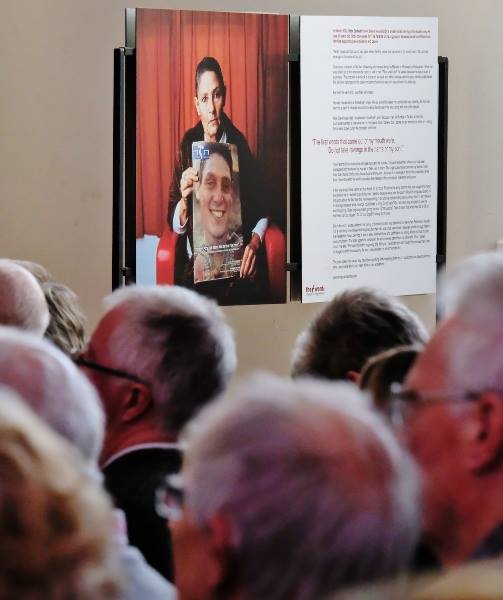Hostile conversations between confrontational conservatives and outraged liberals are one of the loudest clashes in the digital weaponry of the thumbs up, thumbs down technology of social media. The internet has turbo-charged abuse and it is clear for all of us to see how easily racist narratives can fan the flames of prejudice and normalise hate.
The Forgiveness Project’s central mission is to nudge the dominant narrative of our time away from stories of hate, division and demonisation towards humanising narratives – moving from stories that harm to stories that heal. As the poet Ben Okri has said: ‘Stories are the secret reservoirs of values: change the stories individuals and nations live by and tell themselves and you change the individuals and nations.’
Restorative narratives have the power to transform lives. They not only support people to move on from harm or trauma, but also build a climate of tolerance, resilience, hope and empathy. This idea informs the Forgiveness Project’s work across multiple platforms – in publications and educational resources, through the international F Word exhibition, in public conversations, and in the award-winning RESTORE prison programme. In the last, victims of crime and ex-offenders use the power of their own stories to encourage hope, resilience and responsibility, to help prisoners change the narrative of their lives.
What does it take to live in peace with people we fear or don’t like, or those who have harmed us or hurt us? What does it take to restore relationships with others, or if that’s impossible or irrelevant, to reconcile with our own unresolved pain?
From the many stories I have collected over the years, it seems to me it requires four fundamental human qualities to get to a place where you are able to let go of resentment, and possibly even find a place of forgiveness. I see forgiveness in this sense as an effective pain management strategy, which can mend broken hearts and repair broken communities.
The first quality is curiosity – a vital ingredient of forgiving because it fuels an inquiring, open mind as you move from ‘why me?’ to ‘why them?’ Wonder and curiosity keep us from behaving as if we have other people figured out.

From an exhibition at Moortown Baptist Church in Leeds in March, 2018
Then there is perspective taking; having curiosity means you have an open mind, which leads to a broader worldview. Forgivers are flexible, broad thinkers who seek to understand others and can reach beyond their own inner circle.
If curiosity leads to understanding, then understanding leads to empathy. Empathy requires you to stand in someone else’s shoes no matter how dirty or ill-fitting they may be. So often it is a moment of empathy that shifts someone’s narrative away from hate.
And finally meaning-making – the ability to use adversity for some greater good. Viktor Frankl (in Man’s Search for Meaning) says it comes from ‘the freedom to choose one’s attitude in any given circumstance’.
This doesn’t mean making sense out of everything: some things are too terrible to explain. It simply means that survivors begin to pursue what matters to them, and are thus able to find meaning in their lives again. The by-product is that people start to develop new ways of belonging to community.
Bassam Aramin’s story shows all four qualities. He is a former terrorist/freedom fighter from Palestine’s West Bank. At 16 he tried to blow up an Israeli military convoy with a grenade. He failed and was sentenced to seven years in prison. There he was shown a film about the Holocaust. Till then he believed the Holocaust was mostly a myth: he wanted to watch it because he thought he’d enjoy seeing Jews being killed. However, when he saw what had happened he broke down crying. It was, he said, the first time he felt empathy for his oppressors. It was also the start of a friendship with one of his guards.
After prison Bassam was able to make meaning from what had happened to him by becoming the co-founder of Combatants for Peace, an organisation where both sides work together to find common ground. Bassam used to hate Israelis but by knowing them and working with them for peace he overcame this hate. Even after the military shot and killed his daughter near her school, he didn’t hate them. In fact he even forgave the shooter – seeing them both as a product of the same hateful system.
‘For me there was no return from non-violence,’ writes Bassam. ‘After all, it was one Israeli soldier who shot my daughter, but 100 former Israeli soldiers who built a garden in her name at the school where she was murdered.’
Photos: The Foregiveness Project